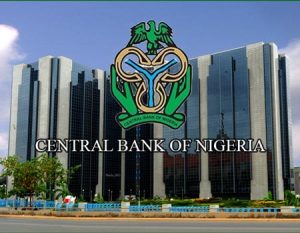The Central Bank of Nigeria (CBN) has recently announced a substantial improvement in its Net Foreign Exchange Reserve (NFER) position, reflecting a positive shift in the nation’s external liquidity, a reduction in short-term obligations, and an uptick in investor confidence.
The apex bank, in its recent report, revealed that the country’s Net Foreign Exchange Reserve (NFER) rose to $23.11 billion at the end of 2024, representing the highest level in over three years compared to $3.99 billion recorded at the end of 2023.
Widely viewed as a more precise representation of a country’s foreign exchange cushion, the Net Foreign Exchange Reserve captures the actual reserve level available to cover short-term external commitments.
The CBN stated that the country’s gross external reserves rose to $40.19 billion by the end of 2024, representing a substantial increase from $33.22 billion recorded at the close of 2023.
This upward trend in the nation’s gross external reserves is considered a direct result of the CBN’s efforts to boost the country’s external liquidity position through various strategic interventions, notably the reduction of short-term foreign exchange liabilities, including swaps and forward contracts.
Despite the ongoing reduction of short-term foreign exchange liabilities, the CBN stated that it has managed to achieve a stronger, more transparent, and resilient reserve position, thereby boosting the country’s capacity to withstand external shocks and maintain economic stability.
According to the CBN, policy interventions aimed at enhancing investor confidence in the foreign exchange market, coupled with an uptick in foreign exchange inflows from non-oil sources, have contributed significantly to the strengthening of Nigeria’s gross external reserves position.
“This improvement in our net reserves is not accidental; it is the outcome of deliberate policy choices aimed at rebuilding confidence, reducing vulnerabilities, and laying the foundation for long-term stability,” Governor of the Central Bank of Nigeria, Olayemi Cardoso, commented. “We remain focused on sustaining this progress through transparency, discipline, and market-driven reforms,” it stated.
The improvement in Nigeria’s gross external reserves has persisted in 2025, albeit with some seasonal and transitional adjustments recorded in the first quarter, primarily due to interest payments on foreign-denominated debt.
Despite these adjustments, the core economic fundamentals underpinning the strengthening reserves position remain robust, pointing to a positive outlook for continued growth over the second quarter of the year.
Looking ahead, the CBN anticipates a steady growth trajectory for the country’s gross external reserves, driven by a combination of factors, including a projected increase in oil production levels and a supportive export environment that is expected to bolster non-oil foreign exchange earnings, contributing to a more diversified portfolio of external inflows.










